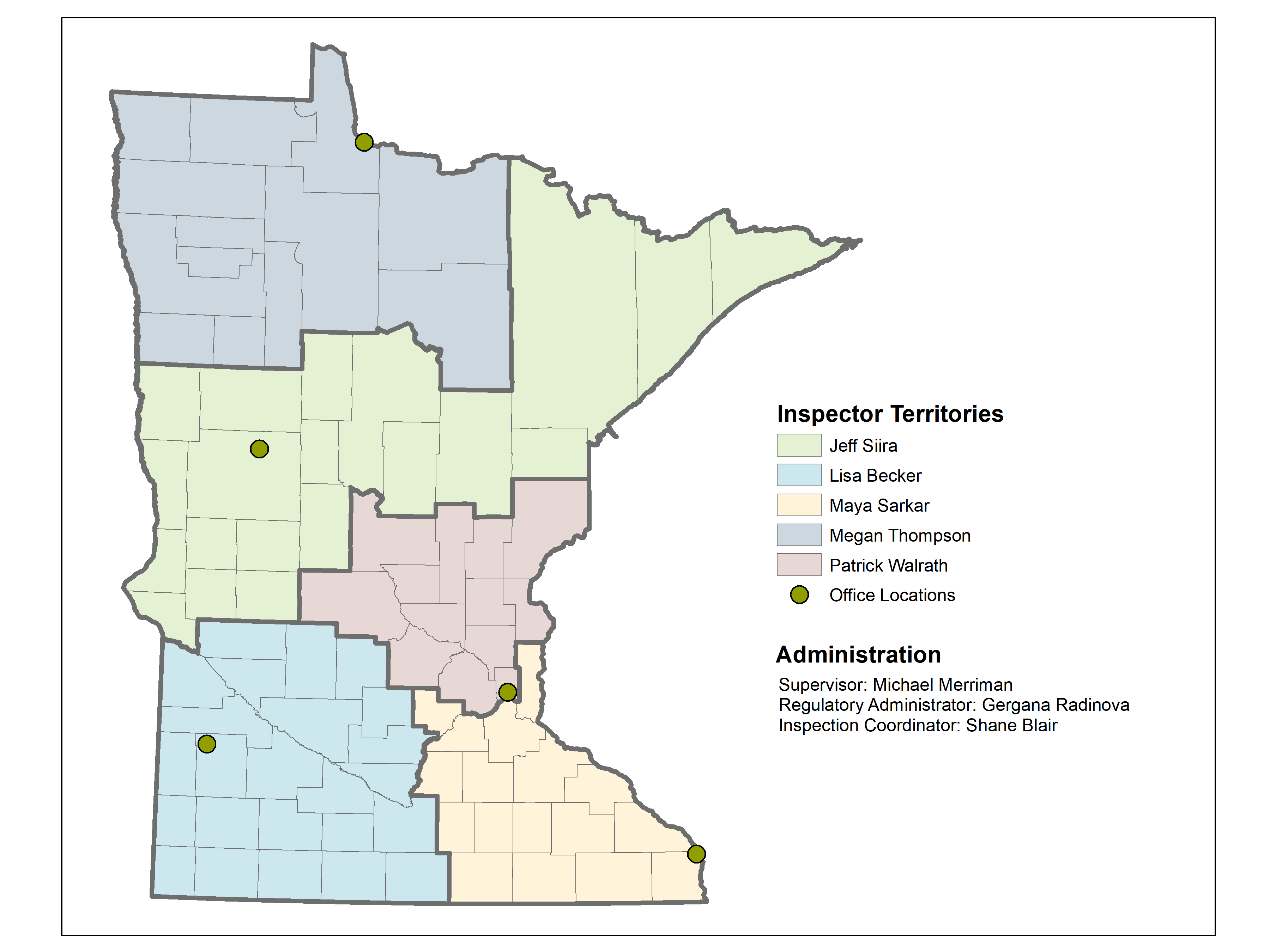Return to Seed Program main page
Minnesota Seed Regulatory Program
All seed that is sold in Minnesota must be properly labeled to meet the requirements of the Minnesota Seed Law Minnesota Statutes, sections 21.80-21.92) and the Federal Seed Act. These laws are intended to protect consumers based on truth-in-labeling principles and promote fair competition among seed sellers through the establishment of minimum standards. The information provided on the label informs the consumer about the contents and quality of seed. The person or firm that labels seed must be aware of all applicable laws and regulations including the Plant Variety Protection Act. Compliance with these regulations is determined by routine inspections of seed across the state to determine if the information on the label is accurate. When a violation of regulations is discovered, the seed regulatory program informs the labeler and requires corrective action.
Seed Inspection Territories

Truth in labeling: What does a label tell you?
Seeds that are sold must have a label showing the buyer what kind of seed is in the container and that the seed will germinate and grow into a plant. The label also shows the buyer if weed seeds or other contaminants are present. When seed is contaminated by certain weed seeds it may not be legal for sale in Minnesota. An accurate label should be available to any consumer purchasing seed.
Please check out our presentation for seed retailers that provides guidance on best practices for selling and labeling seed in Minnesota.
Compliance and Enforcement: Are labeling requirements being met?
Official seed samples are collected from seed available for sale across the state. MDA inspectors and County Ag Inspectors are authorized to inspect seed where it is available for sale and randomly sample seed to test. These official samples are submitted to the state seed laboratory for testing according to the Association of Official Seed Analysts (AOSA) rules for testing seeds. The results obtained are compared to the information on the label. If the results are within tolerance of the label, the seed is considered legal for sale. If the results are not within tolerance, a warning or violation is issued and corrective action is taken.
Persons or companies that prepare and label seed for sale are responsible for all claims of quality and purity made on the seed label. Labelers may need to re-label seed for sale to ensure that the label accurately reflects seed quality. The MDA Seed Regulatory program tracks compliance and educates seed labelers and retailers to ensure that the law is obeyed. A person or company who violates the Minnesota Seed Law can be punished by administrative, civil, or criminal penalty.

Complaints and Arbitration
When a consumer believes that they have purchased seed that was not as represented or that the Minnesota Seed Law has been violated, a seed complaint may be filed with the MDA. The MDA will investigate and inform all involved parties of the findings. The MDA does not have the authority to award compensatory damages.
The Minnesota Seed law provides for arbitration of cases involving the sale of seed between two parties that cannot be resolved otherwise.

